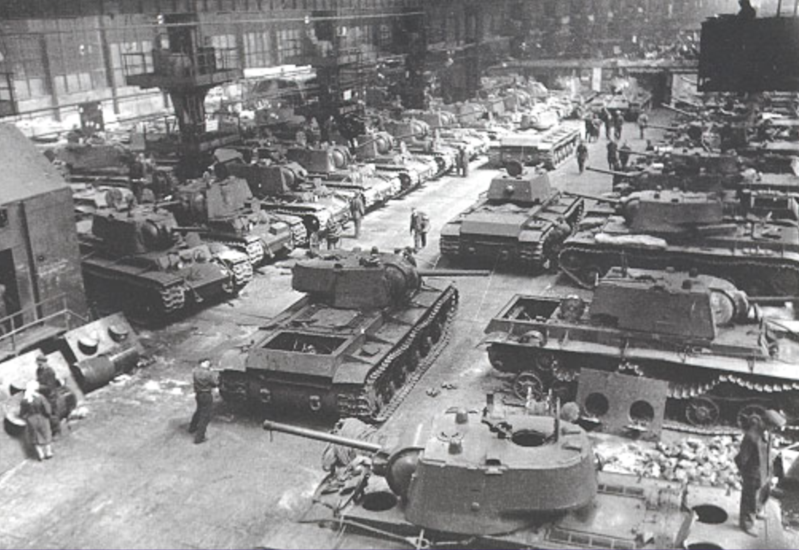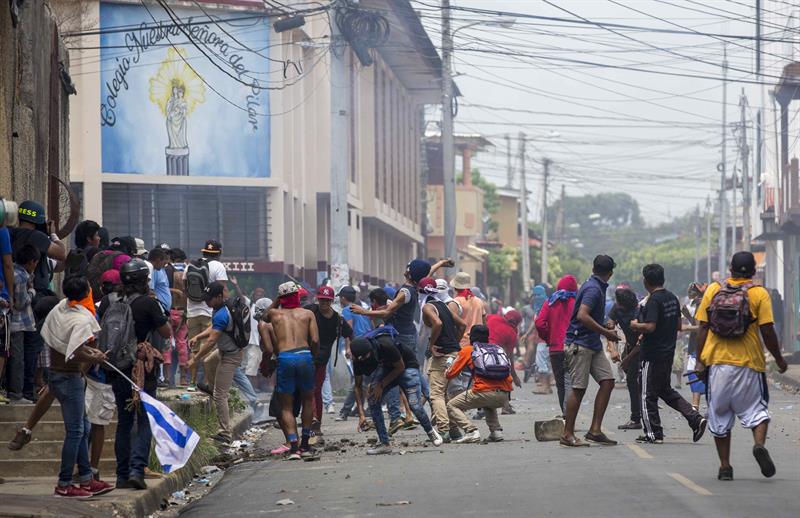By Javier Sethness
“In a totally fictitious world, failures need not be recorded, admitted, or remembered. […] Systematic lying to the whole world can be safely carried out only under the conditions of totalitarian rule.” – Hannah Arendt1
-

Soviet women working on wartime production of tanks (courtesy David Goldfrank)
So far, in parts I and II of this response to “A Marxist-Leninist Perspective on Stalin,” we have seen how the “Proles of the Round Table” and their host Breht Ó Séaghdha have systematically lied on their infamous ‘Stalin podcast’ about the history of the Soviet Union, from covering up the Barcelona May Days (1937), the GULAG slave-labor camp system, the Hitler-Stalin Pact (1939), and the NKVD’s mass-deportation of Muslim and Buddhist minorities during World War II to declaring mass-death through Stalin’s forced collectivization of the peasantry to have been “extremely successful.” It is clear why Jeremy and Justin confidently present such a fraudulent version of history: were they even to mention any of these realities, it would become clear that their presence as Stalin apologists on a radio show ostensibly dedicated to an examination of “revolutionary left” history and theory would be immediately revealed as absurd. Yet here we are.
In this final third of my critique of this travesty, we will examine Jeremy and Justin’s genocide denial and their enthusiasm for the Moscow Show Trials. In contrast to the “Proles of the Round Table,” we will explore how anti-Semitism, ultra-nationalism, and sexism are essential aspects of the Stalinist legacy. We will then close with some comments about Soviet ecocide and a critical analysis of neo-Stalinist international relations today, which cover for pseudo-anti-imperialist executioners.
Holodomor Denial
While the breadth of Jeremy and Justin’s Stalin’s apologia on this interview is quite astounding, few aspects are as vile as their denial of the genocidal Ukrainian famine of 1932-1933. Justin is very clear about their view: “there was no mass-famine,” and the idea of Holodomor (the “Great Ukrainian Famine”) is a “myth.” Jeremy jumps in to claim that “Ukrainian nationalists” sought to undermine Stalin and “intentionally starv[e] the Soviet Union.” First, let’s note that, in making the latter claim, Jeremy unwittingly admits that the Soviet Union was imperialist, and should be that way: the implication is that Ukraine and other former colonies of the Tsarist Empire exist to serve Russia, or, in this case, Stalin’s regime. Beyond that, certainly there was famine in Ukraine in 1932-1933: the “Proles of the Round Table” are almost unique among neo-Stalinists, in that, rather than claim that the reported Holodomor death-toll has somehow been exaggerated for political purposes, they claim that it never happened. In so doing, they quite literally ape Stalin’s refusal to accept the reality of famine in Ukraine in spring 1932 upon receiving word of it from Vlas Chubar, Bolshevik leader of Ukraine, after which the General Secretary denied famine relief and banned the use of the word from all official correspondence.2 While climatic conditions played a part, it was arguably the unrealistic quotas for the extraction of grain from the Ukrainian peasantry following in the wake of the “extremely successful” experience of forced collectivization that tipped the peasants into the first famine (spring 1932); once Stalin doubled down on the confiscation of grain and cattle after hearing initial reports of the famine, adding reprisals against those villages that failed to meet production quotas by cutting them off, this exacerbated an already disastrous situation. The result was the death of nearly 4 million Ukrainians, more than 10% of the population, with an additional 1-2 million Caucasians, Russians, and Kazakhs succumbing as well.3 Unsurprisingly, Justin and Jeremy have nothing to say about these Central Asian and Caucasian Muslim victims of famine.
To advance their lies about Ukraine, the “Proles of the Round Table” rely on one Grover Furr, a Stalin propagandist who also denies the Holodomor by citing the work of Mark Tauger, a supposed historiographer who actually quite fraudulently argues against the idea that the British Empire or the Soviet Union were responsible for the Great Irish Famine or the Bengal Famine, in the former case, or Holodomor, in the latter. As Louis Proyect has shown, Tauger wants to exclusively blame “environmental conditions” for these devastating catastrophes, and thus hide the role of political economy, power relations, and imperialism. This is the kind of ideology that the “Proles of Round Table” hold up as legitimate historical investigation.
Following the argument of the Jewish Polish lawyer Raphael Lemkin, originator of the concept of genocide, historian Norman Naimark holds Stalin responsible for genocide, if we consider the term’s original definition, which meant to include social and political groups. In targeting the “kulaks” for elimination and thus provoking the Holodomor, Stalin certainly was genocidal. This conclusion becomes even clearer when we review Stalin’s imperialist policies, his regime’s concurrent purging of most of the Ukrainian Communist Party leadership for their putative “nationalism,” and his August 1932 letter to fellow Politburo member Lazar Kaganovich, in which the General Secretary “set [forth] the goal of turning Ukraine into a real fortress of the USSR, a truly model republic.”4
Apologism for the Moscow Show Trials and Terror
“The insane mass manufacture of corpses is preceded by the historically and politically intelligible preparation of living corpses.” – Hannah Arendt5
While we have examined the Purges in parts I and II, let us now focus specifically on Justin and Jeremy’s apologism for the infamous Moscow Trials of the “Old Bolsheviks” (1936-1938), which were clearly nothing more than show trials. Justin begins by mistaking the Bolshevik leader Gregory Zinoviev for “Alexander Zinoviev,” a Soviet philosopher, and then mentions Trotsky’s analysis of “Soviet Thermidor” without in any way clarifying its application to Stalinism in power: that is, with reference to its historical antecedent—the French Revolution—whereby the bourgeois Directory seized power after overthrowing the Jacobin leaders Maximilien Robespierre and Louis de Saint-Just. To be clear, Stalin’s counter-revolution is highly suggestive of the legacy of the Directory—which is not to suggest that either Lenin or Robespierre were revolutionaries. In parallel, the “Proles of the Round Table” will mention Trotsky’s analysis of Stalin’s guilt over Hitler’s rise—written years after his expulsion from the party—and somehow consider this as retroactive criminal evidence for Trotsky’s supposed conspiracy against the General-Secretary-to be (as in the Left and United Opposition). Yet tellingly, they will not present the actual content of Trotsky’s argument: namely, that Stalin’s Comintern policy on “social fascism” facilitated the Nazi takeover of Germany.
Continuing on, Justin states that Zinoviev and Lev Kamenev “recanted” following their joining with Trotsky in the United Opposition to Stalin—but no reason is given as to why. Certainly, as in the case of Nikolai Bukharin, Zinoviev and Kamenev feared for their lives and that of their loved ones, particularly after seeing the example made of Trotsky, who was expelled ignominiously first from the Communist Party, and then the Soviet Union altogether (in 1928). Instead of contemplating such factors, the “Proles of the Round Table” begin to attempt to explain “why […] the Purge [is] beginning to become a necessity [sic].” Attempting to insert a victim-blaming narrative, Justin and Jeremy suggest that not all the “Old Bolsheviks” were “Communists”—meaning Stalinists—and therefore imply the necessity of their liquidation—and, in many cases, that of their families, who were also murdered so as to prevent revenge attacks against the Party emanating from the “clan” of those executed.6

